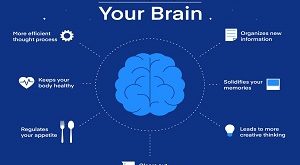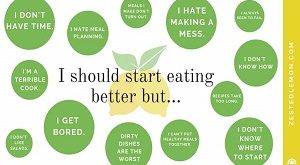Introduction:
In the fast-paced and demanding world we live in, stress has become an almost ubiquitous aspect of daily life. While some stress is a natural response to challenges, chronic stress can have detrimental effects on both mental and physical health. Fortunately, effective stress management strategies exist to help individuals navigate life’s pressures and maintain overall well-being. In this comprehensive guide, we will explore various approaches on how to manage stress for better health, incorporating techniques that address both the mind and body.
- Understanding Stress:
Before diving into stress management techniques, it’s crucial to understand what stress is and how it affects the body and mind. Stress is the body’s natural response to a perceived threat or challenge, triggering the release of hormones such as cortisol and adrenaline. While acute stress can be a motivator, chronic stress can lead to a range of health issues, including anxiety, depression, digestive problems, and cardiovascular issues.
- Identifying Sources of Stress:
The first step in managing stress is identifying its sources. Stressors can be external, such as work deadlines, relationship challenges, or financial pressures, or internal, like perfectionism or negative self-talk. Keeping a stress journal can help pinpoint specific triggers and patterns, providing valuable insights into areas that need attention.
- Practicing Mindfulness and Meditation:
Mindfulness and meditation are powerful tools for managing stress by promoting relaxation and present-moment awareness. Practices such as deep breathing, guided imagery, and mindful meditation help shift the focus away from stressors, fostering a sense of calm and mental clarity. Incorporating just a few minutes of mindfulness into daily routines can make a significant difference in stress levels.
- Regular Physical Activity:
Exercise is a natural stress reliever that benefits both the body and mind. Physical activity stimulates the release of endorphins, the body’s feel-good neurotransmitters, promoting a positive mood and reducing stress. Whether it’s walking, jogging, yoga, or other forms of exercise, finding an activity that brings joy can contribute to better stress management.
- Establishing Healthy Sleep Habits:
Quality sleep is essential for overall health and resilience against stress. Establishing a consistent sleep routine, creating a comfortable sleep environment, and avoiding stimulants before bedtime are crucial steps in improving sleep quality. Lack of sleep can exacerbate stress and diminish the body’s ability to cope with challenges effectively.
- Balanced Nutrition:
The foods we consume play a significant role in how our bodies respond to stress. Nutrient-rich, balanced diets support physical and mental well-being. Avoiding excessive caffeine, sugar, and processed foods can help stabilize energy levels and mood. Additionally, staying hydrated is vital for overall health and can contribute to stress management.
- Time Management and Prioritization:
Effectively managing time and prioritizing tasks can alleviate feelings of overwhelm and stress. Breaking tasks into smaller, more manageable steps, setting realistic goals, and establishing priorities help create a sense of control. Utilizing tools like calendars and to-do lists can assist in organizing responsibilities and deadlines.
- Building a Support System:
Connecting with others and building a support system is crucial for managing stress. Talking about stressors with friends, family, or a mental health professional can provide valuable perspectives, empathy, and emotional support. Feeling understood and supported can reduce the burden of stress and contribute to better mental health.
- Engaging in Relaxation Techniques:
Incorporating relaxation techniques into daily routines can help counteract the physiological effects of stress. Techniques such as progressive muscle relaxation, biofeedback, and aromatherapy have been shown to promote relaxation and reduce stress levels. Experimenting with different techniques allows individuals to discover what works best for them.
- Setting Realistic Expectations:
Perfectionism and unrealistically high expectations can contribute to chronic stress. Setting realistic goals, acknowledging limitations, and embracing the concept of “good enough” can reduce the pressure to achieve unattainable standards. Accepting that imperfection is a part of the human experience can be liberating and contribute to better stress management.
- Hobbies and Leisure Activities:
Engaging in hobbies and leisure activities provides an enjoyable escape from the pressures of daily life. Whether it’s reading, gardening, painting, or any other activity that brings joy, dedicating time to leisure pursuits contributes to a balanced and fulfilling life. Hobbies offer a creative outlet and a way to recharge both mentally and emotionally.
- Learning to Say No:
Setting boundaries and learning to say no when necessary is an essential aspect of stress management. Overcommitting to responsibilities can lead to burnout and heightened stress levels. Understanding personal limits and communicating them assertively helps establish a healthier work-life balance.
- Seeking Professional Help:
If stress becomes overwhelming and persists despite efforts to manage it, seeking professional help is a proactive step. Mental health professionals, including counselors, psychologists, and psychiatrists, can provide tailored strategies and support to address underlying causes of stress and develop coping mechanisms.
- Cultivating a Positive Mindset:
Fostering a positive mindset involves consciously choosing to focus on the positive aspects of life. Practicing gratitude, reframing negative thoughts, and cultivating optimism contribute to a more resilient mental attitude. Positive thinking can help individuals navigate challenges with greater ease and reduce the impact of stress.
- Periodic Digital Detox:
Constant connectivity through digital devices can contribute to information overload and heightened stress levels. Taking periodic breaks from screens, practicing digital detox, and creating designated tech-free zones and times can contribute to mental clarity and reduced stress.
Conclusion:
Effectively managing stress for better health is a holistic endeavor that involves addressing both the mind and body. By incorporating a combination of mindfulness practices, physical activity, healthy habits, and support systems, individuals can build resilience against the challenges of daily life. The key is to recognize the unique strategies that work best for each person and to cultivate a proactive approach to stress management. In embracing these techniques, individuals can create a foundation for improved mental and physical well-being, fostering a life that is more balanced, resilient, and fulfilling.




